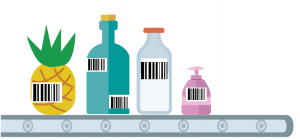- Sophie Main
- September 26th, 2016
Earlier this year, following the result of the EU referendum, we published Businesses and Brexit: The importance of efficiency. In the article, we suggested that the key to surviving the uncertain future posed by Britain’s split from the EU is for businesses to become adaptable to change by increasing their efficiency.
While only time will prove the strength of this theory, it is possible to gain an idea of the advantages of creating a Lean organisation by looking at those already mastering the method.
One such example is the German-owned supermarket, Aldi.
Quickly becoming the go-to supermarket for much of the British public when doing their ‘big shop’, Aldi epitomises Lean management. From its factories to its shop floor, everything is designed with efficiency in mind, allowing them to supply their customers with the quality they want at the low prices they require. One of their well-known slogans, ‘A smarter way to shop’, summarises the system their Lean management has created and their success is proof of the possibilities achieved through efficiency.
To inspire you in the ways in which you could increase your organisation’s efficiency, let’s take a closer look at the well-oiled Lean machine that is Aldi.
Aldi under the microscope
The products
The most well-known key to Aldi’s success is their limited variety of produce. As opposed to stocking the average 10,000 product variations that most other major supermarkets offer, Aldi only holds around 1,300 products in each of its stores. Beyond different crisp flavours, you will struggle to find more than one type of the same product on their shelves. This limit on option reduces waste, both in terms of stock, space and movement, and allows a clear and effective supply chain.
But this is much more than a stack ‘em high, sell ‘em low success story; the products that Aldi do stock aims to be high-quality for minimal price, rivalling many major brands as illustrated by the now famous Aldi taste tests. The money they have invested in these campaigns seems to have been well spent, increasing a trust in their produce and reducing their dependency on the expensive big brands – only around 5% of their products are branded!
Appealing to their customers’ desires for quality and responding to the rise of the ethical consumer, Aldi has emphasised an importance on their long-term commitment to British farming. This not only pleases the all-important customer, but allows for a Lean supply chain as the use of locally-sourced produce, reduces the time and cost spent on transportation.
The store and the staff
The store and its staff are a carefully and cleverly constructed system. The buildings are never oversized, keeping down the cost of bills and maintenance, and the operational costs are also minimised by their simple approach to opening hours; going against the grain set by the big retailers once again, Aldi stores do not open 24 hours a day.

The shop floor staff are trained in every area of the operation of the store, removing the risk of single point of failure and making often tricky management tasks, such as the designing of rotas, extremely simple to solve. The diversity of the employees’ roles not only creates an agile and adaptable workforce, but works to keep staff busy, empowered and engaged. Motivation is also encouraged through paid breaks and the above-average wages. Conscientious of the importance of keeping both the internal and the external customer happy, the costs of these benefits are never offset in the prices of the produce.
Packaging and placement
From the packaging to the way it is displayed, every part of Aldi’s products have been designed to reduce waste. The majority of the containers that the products are transported in easily transforms into the product displays themselves, reducing wasted time, effort, and any physical waste. Packaging is adorned with large or multiple barcodes, allowing the shopping to run smoothly past the till scanner and straight into the dedicated trolley docking bay.

As opposed to slowing down the system by packing their carrier bags at the checkout, as is customary in most supermarkets, Aldi’s layout encourages customers to move away from this area before packing their carrier bags. Instead, customers can often be seen using the dedicated deep window sills to pack their products or simply perform the task by their car. While this often takes time for new customers to adjust to, it seems to suit increasingly time-poor customers.
A smarter way to run our businesses
Whereas Asda, Tesco, Morrisons and Sainsbury’s have been embroiled in a price war for several years, forced to cut staff, slash prices and take part in an ongoing price-match battle, Aldi seems to have thrived through the recession. The months following the EU referendum have also shown a drop in sales for the big four, while Aldi and Lidl have achieved a 5% increase in shoppers.
The main difference between the big four and the so-called ‘budget supermarkets’? Their efficiency.
Aldi’s offering of high-quality products at such low prices is all the result of their impressive efficiency and customer focus, combined with respect for their staff, and it is this that has placed them in such as strong position in an increasingly unpredictable economy. By exploring just a few aspects of their Lean approach, it is clear that Aldi are not just showing us all a smarter way to shop, but a smarter way to run our businesses.
Click the link below to start your Lean journey by taking our FREE introductory Lean Six Sigma course.



